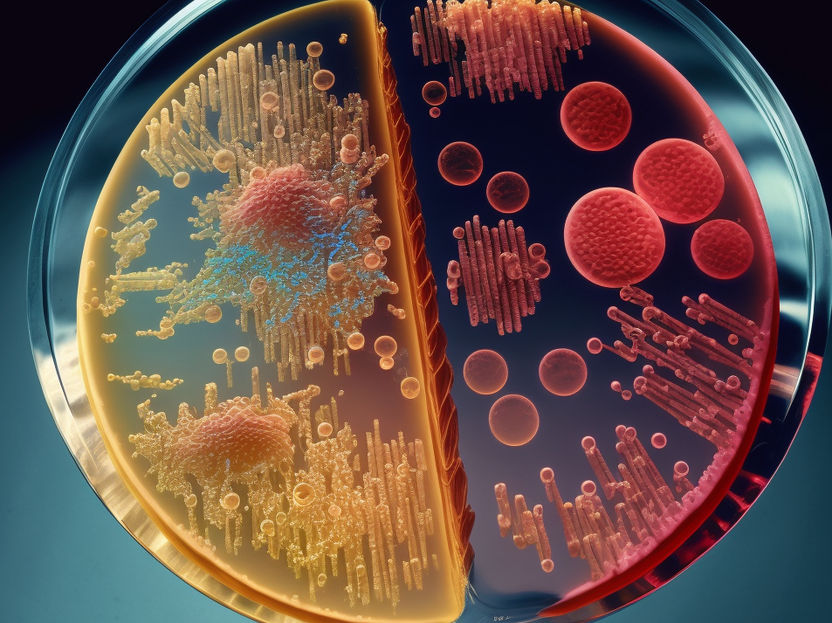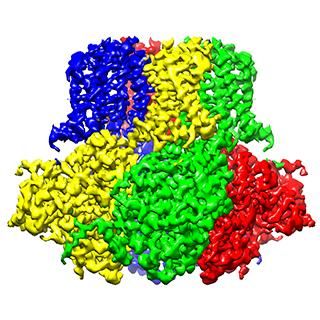Next generation bioscience centres in Edinburgh, Nottingham and Oxord awarded £27M
Three new centres for integrative systems biology, representing an investment of £27M, have been announced by the biotechnology and Biological Sciences Research Council (BBSRC). This follows the successful launch of three centres last year. The new centres will be located at the Universities of Edinburgh, Nottingham and Oxford and will bring together biologists, mathematicians and computer scientists. The funding includes £4.8M from the Engineering and Physical Sciences Research Council (EPSRC). The host universities are also making considerable investments in the centres, devoting dedicated space and contributing research posts and facilities.
The new centres focus specifically on: dynamic biological systems, such as biological clocks, the nature and behaviour of plant roots and signalling pathways in bacteria and yeasts. They will also have an 'outreach' function, stimulating systems biology research across the whole of biological science research. They will combine experimentation with computer simulations in order to process experimental results, design new experiments and to generate generic and predictive 'solutions' that are widely applicable. The centres will also produce a new generation of young scientists able to work at the interface between experimentation, modelling and theory outside the constraints of current disciplinary boundaries.
The University of Edinburgh is committed to a multidisciplinary approach that integrates the life sciences with the physical sciences. The Centre for Systems Biology at Edinburgh aims to model dynamic biological systems - focusing on RNA metabolism, the interferon pathway and circadian rhythms - and will bring together researchers from informatics, molecular plant sciences, medicine and cell and molecular biology among others.
The Centre for Plant Integrative Biology (CPIB) at the University of Nottingham will develop a 'virtual root' which will serve as an exemplar for using Integrated Systems Biology to model multi-cellular systems. The Nottingham Centre will integrate advanced experimental and imaging approaches with innovative mathematical, engineering and computer science research in conjunction with Rothamsted Research and several international collaborators.
The Oxford Integrative Systems Biology Centre will tackle a range of biological problems concerning network pathways. A major interdisciplinary initiative, the centre involves members of the Departments of Biochemistry, Pathology, Chemistry, Mathematics, Statistics, Engineering and Computation. The research will look at the complex language which single cell organisms use to control their behaviour. The aim of the project is to develop robust predictive models of these highly complex models.
Most read news
Topics
Organizations
Other news from the department science

Get the life science industry in your inbox
By submitting this form you agree that LUMITOS AG will send you the newsletter(s) selected above by email. Your data will not be passed on to third parties. Your data will be stored and processed in accordance with our data protection regulations. LUMITOS may contact you by email for the purpose of advertising or market and opinion surveys. You can revoke your consent at any time without giving reasons to LUMITOS AG, Ernst-Augustin-Str. 2, 12489 Berlin, Germany or by e-mail at revoke@lumitos.com with effect for the future. In addition, each email contains a link to unsubscribe from the corresponding newsletter.
More news from our other portals
Last viewed contents
Wild potato germplasm holds key to disease resistance
Slim and potent - with side effects - Food supplements for weight loss or enhancing sexual performance can contain illegal active ingredients
EGene Inc. Announces Its Strategic Full-Service Distribution Alliance with AH Diagnostics of Denmark
Global Bioenergies announces break-through in direct biological production of butadiene
DSM receives grant of US Department of Energy for biotechnology research
Norwood_(charity)

Schizophrenia manifests itself in the brain structure - The symptoms of schizophrenia vary greatly from person to person

ImageBiopsy Lab - Wien, Austria
Eppendorf grows faster than the market
La Jolla Institute finds previous seasonal flu infections may provide some level of H1N1 immunity

Sequential antibiotic therapy in the laboratory and in patients - Rapid switching between different antibiotics could prevent the evolution of resistance and lead to successful treatment of patients























































